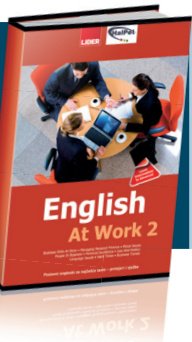Page 1
May PR Be With You\n\nComplete the text with the right form of the missing words. If necessary, consult the GLOSSARY\n\nNot so long ago, an ambitious young woman decided to start a PR (Public Relations) agency in a big Croatian city. Knowing that PR can make, save or 1. __ a company’s reputation, she had no reasons to 2. _ that her pioneer work in that city would bear 3. . But she was mistaken. Local firms, including some large companies which already had problems with 4. publicity, didn’t see PR services as necessary, making it hard for a newly-founded PR agency to 5. . These companies may not have recognised the power of PR, but big players – like Coca-Cola or Nike – did and used it to their 6. . The US Institute of Public Relations defines PR as “the planned and 7. effort to establish and maintain goodwill and 8. understanding between an organisation and its publics”. In the process of informing the publics of any changes and moves of a company or an organisation, its PR tries to create and maintain a positive public image and 9. any failures or mistakes. While multinationals usually have their own PR or communications 10. , smaller companies often hire specialised PR agencies. But PR is not to be found in the corporate sector only – government bodies, trade associations, unions, non-governmental organisations and, of course politicians, all carry out PR activities. These include submitting to editors of trade publications 11. articles covering their industry or business in general, exhibiting at trade 12. and speaking at industry conferences, preparing press kits and press 13. , networking, helping local communities, etc. Let us a closer look at one of the above mentioned big players – Coca-Cola. At the 14. of a new millennium, Coca-Cola’s dominant position in the world beverage market seemed beyond question. And then in 1999, hundreds of people in Belgium and France became ill after drinking Coke. PR was not quick to react, waiting for the results of an investigation. They did, however, published a number of full-page 15. in European newspapers, claiming that the quality of Coke was 16. . It was only a semi-success. But when the investigation proved that it was the cans that were contaminated and not the drink itself, Coca-Cola organised a spectacular public relations 17. , offering a free one-and-a-half litre bottle of Coke to every Belgium’s citizen. Its reputation was 18. and Coke was back in shops. This is a good example of PR in a crisis situation. Never avoid speaking to the public when a crisis occurs – if there is no evidence why something happened, show empathy and promise to take action. Silence can be interpreted as a 19. of responsibility. Lies and manipulation are not something PRs of integrity would allow themselves. That is usually reserved for the 20. ‘spin doctors’ – masters of spin. Spin is a 21. term used to describe manipulative tactics whose aim is to present a person or situation in a favourable way, 22. any awkward facts. The techniques of spin include selectively presenting facts and figures, 23. in public statements and careful choice of timing in the release of certain news. A famous example of the latter practice involves Jo Moore, a British government press officer, who on 11/9 2001 sent an e-mail of the following content: ‘It’s now a very good day to get out anything we want to bury’. The fury that followed made her resign.\n\n—\n\nGLOSSARY\n\n| to destroy | uništiti |\n| to doubt | sumnjati |\n| to bear fruit | urodit plodom |\n| adverse publicity | štetan publicitet |\n| to thrive | rasti, uspješati |\n| to somebody’s advantage | u nečiju korist |\n| sustained effort | trajan napor |\n| mutual understanding | obostrano razumijevanje |\n| to downplay failures | umanjiti pogreške |\n| department | odjel |\n| feature article | veći (glavni) članak (reportaža) |\n| fair | sajam |\n| press release | priopćenje za tisak |\n| advertisement | reklama, oglas |\n| at the threshold of | na pragu |\n| irreproachable | besprijekoran |\n| coup | uspješan udarac |\n| to restore reputation | vrati ugodl |\n| denial of responsibility | nijekanje odgovornosti |\n| infamous | zloglasan |\n| pejorative | pogodan |\n| to suppress awkward facts | zatijati / izostaviti neugodne činjenice |\n| ambiguity | dvosmislenost |\n\n—\n\nPRACTICE\n\nExercise 1\n\nComplete the following viewpoints with the missing words.\n\nreputations bad worse invisible\n\n1. ‘_ publicity is good publicity.’\n Malcolm McLaren, rock impresario\n2. ‘Good PR is _.’\n Peter Bradshaw, business journalist\n3. ‘There is only one thing in the world _\n __ than being talked about, and that is not\n being talked about.’\n Oscar Wilde, writer\n4. ‘Some executives (…) know that __\n ______ are what history remembers of us.’\n Stuart Crainer, business journalist\n\n—\n\n’English at Work 2′ – novi nastavak provjerenog priručnika za one koji žele znati više! Proširene HalPetove lekcije koje izlaze u tjednik Lideru obrađuju teme poslovnog engleskog jezika na zanimljiv, jednostavan i praktičan način: Business Skills at Work – Managing Personal Finance – Moral Issues – People in Business – Personal Excellence – Law and Politics – Language Issues – Hard Times – Business Trends\n\nNaručite svoj primjerak u Liderovoj web-knjžari: webknjizara.liderpress.hr\n\n—\n\nwww.halpet.hr\n\nHalPet – centar za edukaciju poslovnog stranog jezika i komunikacijskih vještina,\nIločka 1, 10000 Zagreb; 01/3095-222\[email protected], www.halpet.hr\n\n—\n\nLider // 14. listopada 2011.\n\n—\n\n078 engleski.indd Sec2:78\n10/12/11 12:51:31 PM




